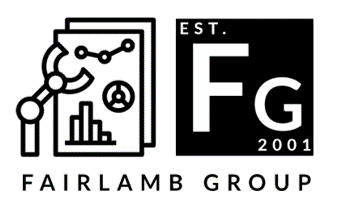Unlocking challenges in complex molecular synthesis (e.g. natural products) using high throughput experimentation and digital chemistry
Students Worldwide (International Students Only)
Applications deadline Thursday, March 9, 2023
Prof. Ian Fairlamb
About the Project
Unlocking challenges in complex molecular synthesis (e.g. natural products) using high throughput experimentation and digital chemistry
Main supervisor: Prof. Ian J S Fairlamb
Background
For well over 100 years there has been a rich tradition of applying new reaction chemistries in the pursuit of synthesising complex molecular structures. Natural product synthesis often presents the most difficult challenges in organic chemistry. However, syntheses can be thwarted by problematic reactions, which are typically tested on a one by one, laborious basis in a single round-bottomed flask. Rarely is sustainability used, as the key driver is often simply getting milligrams of the target compound. Many researcher years are necessary to access some of the most complex natural products. That said, researchers from these projects are very well trained. Indeed, pharmaceutical and agrochemical industries will recruit graduated students with this expertise.
Automated high throughput reaction screening, data analysis and data mining has developed to a point where we can seriously apply the approaches in the synthesis of the most complex molecular structures. This project will do just that, drawing on our synthetic chemistry knowledge, robust robotic technologies, and a range of computational tools. Going forwards there are clear indications from the chemical industry that these skills are going to be necessary for the future synthetic chemist. Hence, this project will provide the perfect opportunity to prepare for that. We plan to focus on 2-pyrone natural product synthesis, for which we have experience, enabling us to apply a range of catalytic reaction chemistries (e.g. using metals such Fe, Mn, Au, Ag, Pd, Ru and Rh), and test more sustainable reagents, solvents and additives.
Objectives
- Synthesise 2-pyrone natural product derivatives using catalytic and sustainable reaction ‘green and clean’ technologies.
- Unlock problematic reaction chemistries using high throughput reaction screening and data analysis tools.
- Employ computational tools to guide reaction design, molecular understanding and a broader appreciation of reported literature reaction outcomes using data mining tools.
Experimental Approach
The project will be primarily synthetic chemistry based, with a focus placed on a topical but complex set of natural products containing a 2-pyrone ring system. We have ca. 25 years’ experience in 2-pyrone chemistry, including the completion of the total synthesis of phacelocarpus 2-pyrone A (see Chem. Eur. J. 2015, 21, 18905) using traditional synthetic methods (reactions conducted one reaction at a time). This new project will do something quite different, complementing traditional synthesis with the use of automated robotic systems to accelerate reaction discoveries, while unlocking bottlenecks where there are problematic reactions. Analysis of the reaction outcomes using data science tools will accelerate reaction optimisation and enable us to move forwards, quickly and efficiently, with a focus on a high-yielding synthesis done in a green and clean way.
Novelty
Currently automation, high throughput experimentation, data science and digital chemistry are transforming our understanding of model catalytic reactions, where there has been a focus placed on cross-couplings like the Suzuki-Miyaura reaction. We would like to take advantage of these approaches in transforming the way that the syntheses of complex molecular targets are synthesised. We will achieve this using a combination of advanced synthetic chemistry strategies, automation technologies and data science tools, which is the novel angle for the project.
Training
We will provide training in advanced synthetic chemistry leading to the formation of complex molecular targets, with a focus placed on 2-pyrone containing natural product targets. Training in Schlenk techniques (air sensitive chemistry) will be provided, in addition to hands-on use of a Chemspeed ISYNTH robotic system. Full training in the data science (computational) tools needed for the project will also be provided, including design of experiment approaches, the analysis of large reaction data sets, and reaction modelling using density functional theory (DFT) methods.
Other Information
Selection process:
You should hold or expect to receive at least an upper second class degree (or equivalent https://www.york.ac.uk/study/international/your-country/) in chemistry or a chemical sciences related subject. Some countries may require a Masters degree.
Applicants should submit a PhD application to the University of York by 9th March 2023 (midnight UK time).
Supervisors may contact candidates for further discussion.
Supervisors can nominate up to two candidates to be interviewed for the project.
The interview panel will shortlist candidates for interview from all those nominated.
Shortlisted candidates will be invited to a remote panel interview on 19 or 21 April 2023.
The graduate awards panel will award studentships following the panel interviews.
Candidates will be notified of the outcome of the panel’s decision by email.
Not all projects will be funded; candidates will be appointed via a competitive process. Note that UK/Home fee paying students are not eligible for this funding.
Funding Notes
Through the generous benefaction of York alumnus, Dr Anthony Wild, the Department of Chemistry at York is pleased to offer a limited number of fully funded studentships to students eligible to pay fees at the international rate only . View Website
Note that UK/Home fee paying students are not eligible for this funding.
This studentship is fully funded for 3 years and covers: (i) a tax-free annual stipend at the standard Research Council rate (£17,668 for 2022/23 entry), (ii) research costs, and (iii) tuition fees at the overseas rate.
